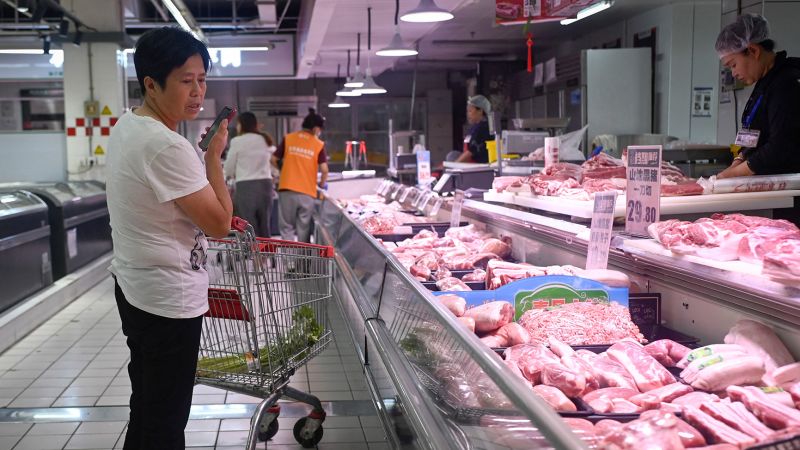In a recent development, Beijing has initiated an investigation into the prices of pork from the European Union, a major EU food export. This move comes just days after Brussels increased tariffs on electric vehicles from China, potentially escalating tensions in one of the world’s largest trading relationships.
China’s Ministry of Commerce announced on Monday that local agricultural producers had requested an anti-dumping investigation into pork and pig by-products from the EU. A preliminary inspection revealed sufficient grounds for a formal probe into whether prices are artificially low. The investigation is expected to conclude within a year but may be extended by six months if necessary.
If import tariffs are raised, it could prove costly for European pork producers, especially if it impacts demand in China, the largest pork market globally and the main destination for EU pork exports. Last year, the EU exported over €2.5 billion ($2.7 billion) worth of pork to China, with Spain being the top exporter followed by the Netherlands, Denmark, and France.
In addition to the pork investigation, Beijing has also launched an anti-dumping investigation into brandy imported from the EU, which could result in tariffs affecting French cognac makers. There are concerns that China may target European wine and luxury goods as well.
Olof Gill, spokesperson for the European Commission, stated that the EU will monitor the pork investigation closely and intervene if necessary to ensure compliance with WTO rules. Responding to questions about EU agricultural subsidies, Gill expressed confidence that any subsidies were in line with WTO obligations.
Beijing’s actions are seen as a potential response to the EU’s decision to impose higher tariffs on electric cars imported from China. The provisional tariffs are set to come into effect on July 4, with a final decision expected by November. The European Commission announced additional tariffs on Chinese EVs, raising concerns in China about its export ambitions and prompting efforts by Chinese carmakers to establish factories in Europe.
Brussels is also investigating China’s state support for wind turbine companies and solar panel suppliers amid worries of industrial overcapacity flooding markets with cheap exports. This move highlights the growing trade tensions between the EU and China.
Xiaofei Xu and Maisie Linford contributed to this report.



